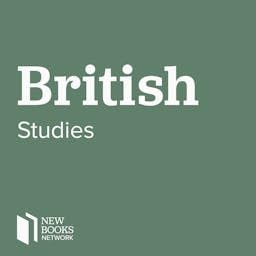The transformation of the Labour Party by 1997 is among the most consequential political developments in modern British history. Futures of Socialism overhauls the story of Labour's modernisation and provides an innovative new history. Diving into the tumultuous world of the British left after 1973, rocked by crushing defeats, bitter schisms, and ideological disorientation, Colm Murphy uncovers competing intellectual agendas for modern socialism. Responding to deindustrialisation, neoliberalism, and constitutional agitation, these visions of 'modernisation' ranged across domestic and European policy and the politics of class, gender, race, and democracy. By reconstructing the sites and networks of political debate, Futures of Socialism: ‘Modernisation', the Labour Party, and the British Left, 1973–1997 (Cambridge UP, 2023) explains their changing influence inside Labour. It also throws new light on New Labour, highlighting its roots in this social-democratic intellectual maelstrom. Futures of Socialism provides an essential analysis of social democracy in an era of market liberalism, and of the ideas behind a historic political reconstruction that remains deeply controversial today. Colm Murphy is a historian of modern British and Irish politics and political economy at Queen Mary University of London. He has published on 1970s-80s social democracy (including its political culture, evolving electoral strategy, and economic policymaking) and on Irish labour relations and nationalism in the 1910s. His more recent work has focused on the politics of economic policy, including Keynesianism, austerity, trade, and currency. Since 2018, Colm has worked for the Mile End Institute and is currently its Deputy Director. Jacob Ward is a historian at Maastricht University, the Netherlands. He has written in the history of science and technology, environmental history, business and financial history, and political history. He recently published Visions of a Digital Nation: Market and Monopoly in British Telecommunications (MIT Press, 2024) and he’s currently working on a history of futurology in the United Kingdom and Europe from 1945 to the present day. Learn more about your ad choices. Visit megaphone.fm/adchoices Support our show by becoming a premium member! https://newbooksnetwork.supportingcast.fm/british-studies
Voir plus
Voir moins
 Dec 14 202530 min
Dec 14 202530 min 1 h et 10 min
1 h et 10 min 42 min
42 min 1 h et 12 min
1 h et 12 min 1 h et 12 min
1 h et 12 min 1 h et 4 min
1 h et 4 min 52 min
52 min 49 min
49 min
